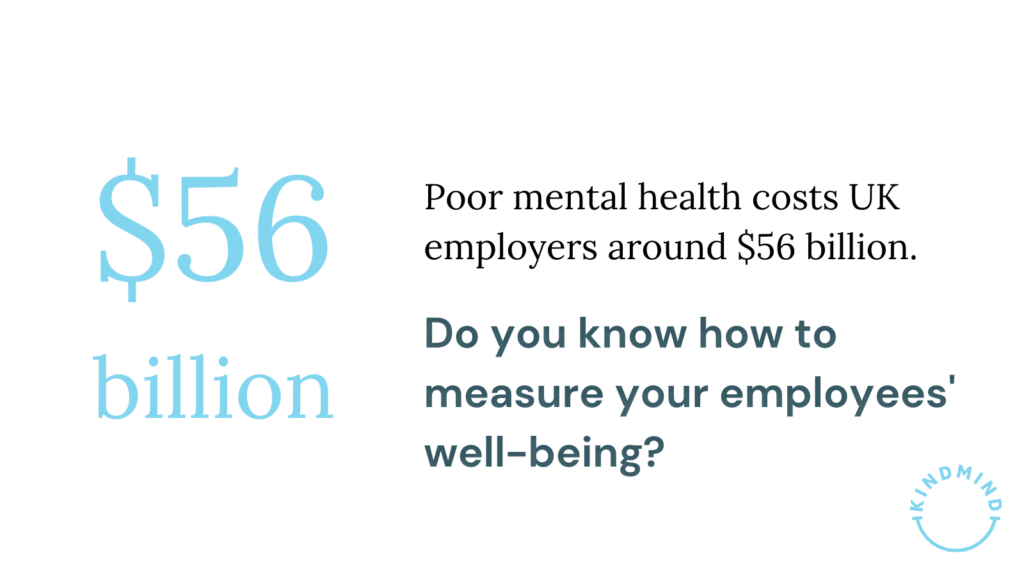We’ve been discussing the hybrid working model a lot recently to help you establish where this fits into your business. As part of that discussion, we feel it is vital to cover employee mental health.
How your employees react to hybrid working is crucial in determining if the model fits your business and its goals. After all, if most of your employees don’t benefit from wider flexibility, you could suffer reduced engagement and higher churn rates – which defeats what you were hoping to achieve: a better employee experience.
In this blog post, we will look at how hybrid working affects employee mental health, covering the good and the bad.
How hybrid working can positively impact employee mental health
Hybrid working can positively impact mental health in several ways, including:
- Greater flexibility – Allows employees to work from home or alternate between home and the office. Providing more flexibility can reduce stress caused by long commutes, rigid schedules, and the need to balance work and personal responsibilities.
- Improved work-life balance – Gives employees more control over their work schedule, which can help them balance work and personal life more effectively, leading to improved mental health and reduced burnout.
- Reduced workplace stress – Hybrid working models can reduce stress caused by noise, distractions, and office politics, improving employee well-being and job satisfaction.
- Enhanced autonomy – Working hybrid can provide employees with greater freedom and control over their work environment and role, leading to increased job satisfaction and empowerment.
- Trust signalling – Employees have experienced a higher level of trust from employers during remote and hybrid working environments. A sense of pride has shown employees pick up the mantle and run with it.
- Improved finances – Employers often don’t talk about money with their employees. Still, according to a Glassdoor survey, as many as 58% of employees working a hybrid pattern said they could cope better in the cost of living crisis.
These are some significant benefits for employees, so it’s no wonder that 85% would prefer to work hybrid in the future.
But is there a downside to this way of working?
How hybrid working can negatively impact mental health
While hybrid working can have many benefits for employee mental health, it can also have some negative impacts, such as:
- Social isolation – Especially for employees who work remotely for extended periods.
- The blurring of boundaries – Around 20% of hybrid employees in the UK need help to switch off from their responsibilities. The “always on” culture can lead to stress, overwork, and burnout.
- Mental and physical exhaustion from jarring transitions – 80% of team leaders believe switching between home and office work can leave employees feeling exhausted.
- Communication challenges – Hybrid working can create communication challenges, especially if there is a need for clear dialogue channels.
- Reduced opportunities for learning and development – Hybrid working can only allow opportunities for learning and development if digital provision is available.
- Reduced peer-to-peer best practice examples – Our employees learn from each other outside of dedicated training. Being in different locations can slow team improvements.
- Management-to-subordinate relationship difficulties – Beyond peer-to-peer relationships, weaker relationships with management can leave employees feeling unconfident, unseen and left out.

According to a recent Deloitte survey, poor mental health costs UK employers around $56 billion. It’s possible that hybrid working is a contributing factor.
However, to shine a light on how to fix that, we believe that effective communication, clear boundaries, and supportive, inclusive workplace policies can mitigate many of these negative impacts.
And that’s the important bit – as employers; we can do a lot to help.
Hybrid working and mental health: What have we learnt
No one has hybrid working hammered out just yet. We are still learning. Learning how to digitally transform our businesses to offer the right tech for hybrid environments and develop working patterns that suit our workflows.
Most importantly, we are still figuring out how to approach people from a hybrid perspective.
At Kind Mind, we believe business performance should have a human-centred approach, regardless of location. That’s why we build an app that supports your people anywhere, on-demand whilst providing you the insight you need to make effective decisions on how your people function should operate.






